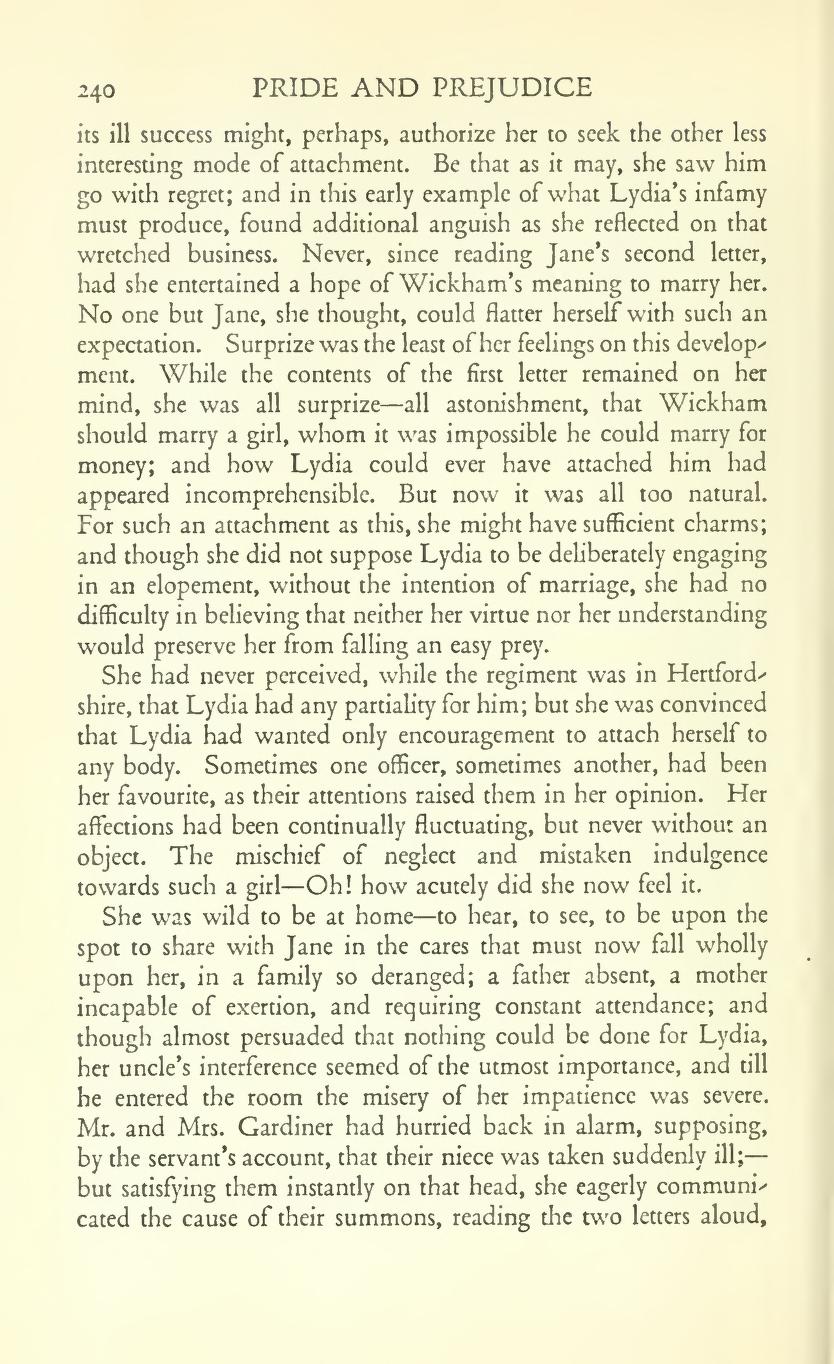 ............prev.....................next
............prev.....................next{{prxprp240.jpg}} || 240 PRIDE AND PREJUDICE ||
its ill success might, perhaps, authorize her to seek the other less
interesting mode of attachment. Be that as it may, she saw him
go with regret; and in this early example of what Lydia's infamy
must produce, found additional anguish as she reflected on that
wretched business. Never, since reading Jane's second letter,
had she entertained a hope of Wickham's meaning to marry her.
No one but Jane, she thought, could flatter herself with such an
expectation. Surprize was the least of her feelings on this develop'
ment. While the contents of the first letter remained on her
mind, she was all surprize -- all astonishment, that Wickham
should marry a girl, whom it was impossible he could marry for
money; and how Lydia could ever have attached him had
appeared incomprehensible. But now it was all too natural.
For such an attachment as this, she might have sufficient charms;
and though she did not suppose Lydia to be deliberately engaging
in an elopement, without the intention of marriage, she had no
difficulty in believing that neither her virtue nor her understanding
would preserve her from falling an easy prey.
She had never perceived, while the regiment was in Hertford'
shire, that Lydia had any partiality for him; but she was convinced
that Lydia had wanted only encouragement to attach herself to
any body. Sometimes one officer, sometimes another, had been
her favourite, as their attentions raised them in her opinion. Her
affections had been continually fluctuating, but never without an
object. The mischief of neglect and mistaken indulgence
towards such a girl -- Oh! how acutely did she now feel it.
She was wild to be at home -- to hear, to see, to be upon the
spot to share with Jane in the cares that must now fall wholly
upon her, in a family so deranged; a father absent, a mother
incapable of exertion, and requiring constant attendance; and
though almost persuaded that nothing could be done for Lydia,
her uncle's interference seemed of the utmost importance, and till
he entered the room the misery of her impatience was severe.
Mr. and Mrs. Gardiner had hurried back in alarm, supposing,
by the servant's account, that their niece was taken suddenly ill; --
but satisfying them instantly on that head, she eagerly communis
cated the cause of their summons, reading die two letters aloud,
[[240]]